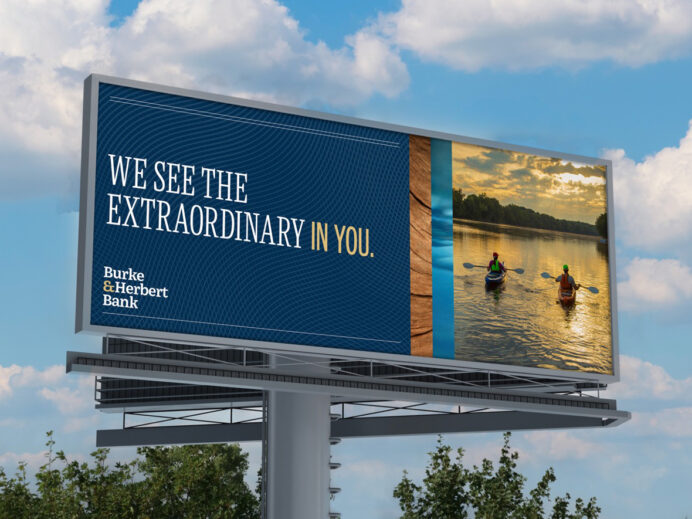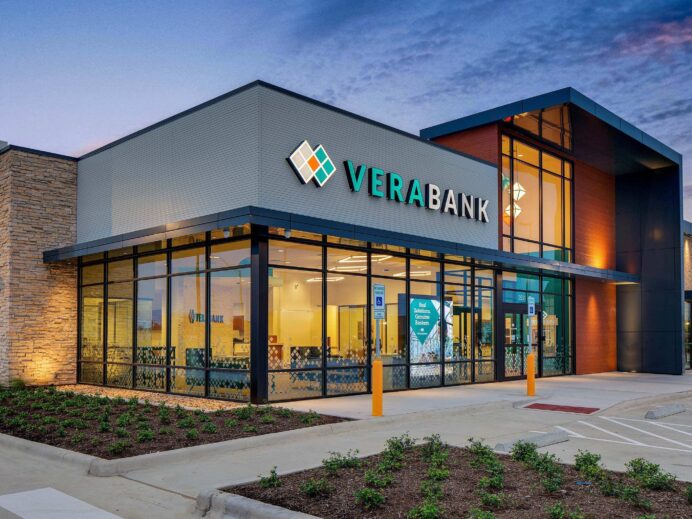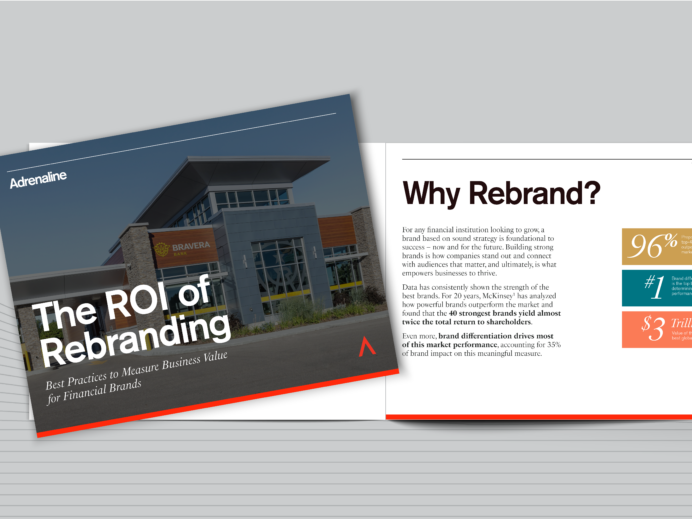An exploration of empathy with Chief Brand Officer Juliet D’Ambrosio on the Empathy-Led Podcast hosted by Junior Nyemb
While many people think of empathy as something that’s fixed and innate, new data finds that empathy is only 10% inherited and that it can (and should) be taught, starting in the classroom. Even more, research finds that empathy is essential to creative thinking and a core pillar to the creative process. In school settings when educators used empathy tools, creativity scores skyrocketed by 78%. “This evidence suggests that empathy is a missing link in the creative process,” says Christopher Berglund in an article on empathy and creativity in Psychology Today. “It’s vital if we want education to encourage the designers and engineers of tomorrow.”
In practice, empathy may be thought of as a soft skill for managers (and it is!), but it represents so much more when infused across organizations and brands. Especially following COVID, empathy has taken center stage for many brands. As Juliet D’Ambrosio noted back in 2020, “Focusing on our shared humanity, empathy-led branding shifts a focus away from ‘consumers’ and ‘audiences’ and toward brands seeing the world through another person’s lens.” Bringing an empathy-led approach into the branding process empowers brands to move beyond transactions into a place where they can create lasting and loyal relationships with people.
In a recent conversation on the Empathy-Led podcast, Juliet and Junior explored the role of empathy in business and branding and what centering empathy can do for brands. Watch the full video of the podcast and keep reading for excerpts where they explore core questions around what empathy is and how untapping its potential can build brand power that drives business performance.
A good place for us to start is by asking what empathy means to you?
To me, empathy is the ability to really inhabit the emotional state, the mindset and the experiences of another human being. For brands, this should be the point from which all decisions are made. That’s also true for me, from the way I parent my kids to the way that I have structured relationships in my broader family – with my five sisters, with my parents, and with extended family friends. And then also what I counsel clients to do around their business or brand decision-making is to understand that it’s not you who you’re making decisions for.
You are not your audience. Your audience is your audience. And the best we can do is go beyond looking at the demographics of who they are and really be able to empathize with them, to feel what they might feel in their experiences. And I think it’s important to say that we lead with that and that all relationships are led by empathy versus being only a component, because it puts human beings in focus and at the center of everything. If I had a personal philosophy, it would be that.
I asked you to be on the Empathy-Led Podcast. I’m interested to know what the idea of “empathy-led” means to you?
For me, what I really intuitively understand is that whatever a business is trying to accomplish, they only get there if they successfully create value for somebody else, right? That profit and revenue are not really goals to be achieved. They are outcomes. They are a way you measure how effectively you have created value for your customers or a society at large. And that is how you get to capture some of that value that you have created.
So for me, it naturally makes sense then that the focus shouldn’t be on how can we be more profitable or increase our revenue, since that’s an outcome. The focus should be on what is the value that we are trying to create for the people that we seek to serve? Or what is the value that we are trying to bring into society knowing that’s the way we actually get to capture value?
You only get paid if you have created value for someone in some way. So, you have to really flex your empathy muscles to understand who those people are beyond the demographic markers. To understand how they make decisions, to understand how they organize their lives, to understand the trade-offs they’re willing to make in an attempt to get what you have created for them. And to craft experiences that are easy, seamless, pleasant, and surprising.
You can only do that if you deeply understand who these people are. And it helps to really care about them, because then you also are able to create magnificent experiences for them. It helps to really care about your employees, as well, because then they too will care about you and your organization and the mission, and they’ll bring their best on a daily basis.
Do you think that leaders are more open to the idea of empathy after COVID? Why do you think we’re seeing the change we’re seeing with people being more receptive to empathy?
That’s a great question. It’s hard to isolate any one variable like COVID. I think it’s a combination of forces – a changing geopolitical climate, socioeconomic forces globally, the proliferation of social media, the greater connection of people, the greater globality of our lives in traveling and connecting with new people or new markets. And then there was COVID also, and a revolution around employees and employers and the power of negotiation and balance that are still underway.
So, I think all of those came together to put humans at the heart of decision-making. And one way I’ve seen it that we can quantify is in the amount of interest, the amount of business press, and the rising importance of the idea of customer experience and how you are creating around your customer’s needs versus how you’re creating a product and you hope your customer is going to come to it.
And because of this focus on customer experience, there’s something like almost 70% of companies now that are competing on customer experience alone. It’s not about quality, service or price. It’s really about what kind of experiences you are going to offer to me. We’re seeing those who invest in great customer experiences rise, compete, and win and become the darlings of both brand and business performance. I think that has helped to drive this shift.
I also think generations are different. The Millennials are different than Gen X, different than Boomers and different than Gen Z. I don’t like to put too much stock in just generational differences, but I do think there is in a way that sort of overriding outlook. As more members of Gen Z rise up into the workplace, who aren’t just digital natives, but came of age during the Great Recession, they have all of these other impacts which help to shape them. They see things, they do things differently, they make different demands, and they have different expectations. So, I think there are so many factors, but I’m glad to see it.
I also think there might be something around the increasing empowerment of women in the workforce, as well. I don’t think empathy belongs to anyone or any gender at all. But the idea is, especially from the employer brand standpoint, that women who are working mothers, for example, have different needs and different expectations. The more that we’re able to listen to those groups and the more we’re responsive to them, the more empathy helps to become a guiding force, both from a business decision-making standpoint, an employer decision-making standpoint and both together.
There are certainly massive changes and expectations from the consumer side, but also from employee side about the role of companies in society. It used to be that it was enough for you to create jobs and pay your taxes and you owe nothing else to society. But now, we are demanding that brands and companies insert themselves in important conversations around our culture and society. People are demanding a little bit more out of their job, right? There used to be a fine separation between personal and professional aspirations, but now these things are merging. They’re bleeding into one another.
I want my job and my profession and my career to be a source of happiness and fulfillment. When you have somebody who has this kind of expectation about their work, how they choose to spend the time at work, where they work and how they contribute their talents and their gifts to make a contribution to the world, it really applies pressure for leaders and companies to start enhancing the circle around what is the purpose of a company. And I, for one, am very happy that we are at least having those conversations because they’re long overdue.
Finally, I think a lot about the idea of trust and the trust that we have put in our institutions globally, and how we have gifted companies and the private sector with our trust to have a greater impact in all sorts of issues: social issues, issues around equity, environmental issues. All of these we’re looking for our companies to lead on, and we trust them more when they do. The benefit of that trust for the company is that people support them more with their loyalty, with their dollars, etc.
So, it’s been a very interesting time to see that shift. And then from a brand standpoint, it’s interesting in how we create brands that have that notion of empathy built within them and to watch them become a reflection of not just the company, but really a reflection of their customers. We’re reflecting their markets and we’re reflecting the world, because we want to see ourselves in the brands that we connect with.
For more information on empathy-led branding or to speak with one of our brand strategy experts, contact us at [email protected]. Stay tuned to Adrenaline’s Insights channel for branding best practices. Be sure to also stay tuned in to Believe in Banking as it highlights industry news and views for banking leaders.
Adrenaline is an end-to-end brand experience company serving the financial industry. We move brands and businesses ahead by delivering on every aspect of their experience across digital and physical channels, from strategy through implementation. Our multi-disciplinary team works with leadership to advise on purpose, position, culture, and retail growth strategies. We create brands people love and engage audiences from employees to customers with story-led design and insights-driven marketing; and we design and build transformative brand experiences across branch networks, leading the construction and implementation of physical spaces that drive business advantage and make the brand experience real.




